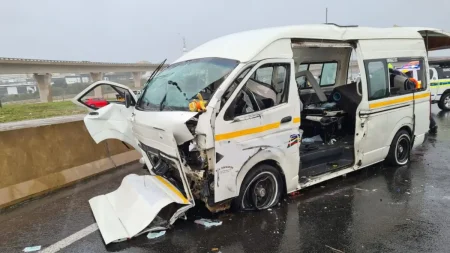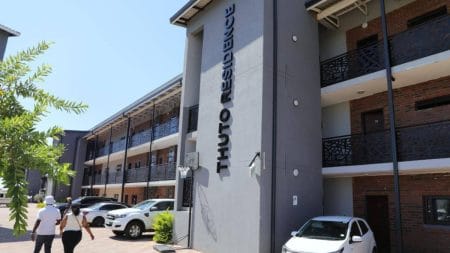In South Africa, owning or using a television set, or any device capable of receiving broadcast signals, requires a valid TV licence. The South African Broadcasting Corporation (SABC), the government-owned broadcaster, uses TV licence fees to fund its operations, ensuring a steady supply of local and national programming. This guide provides you with a comprehensive understanding of the South African TV licence system, including its types, fees, payment methods, and any potential exemptions.
What is a TV Licence?
A TV licence is a legal requirement in South Africa for anyone who owns or uses a television or any device capable of receiving broadcast television signals. This licence is proof that the owner has paid the necessary fee to legally view TV broadcasts. A TV licence is valid for one year, and the holder must pay the fee upfront at the beginning of each year.
Types of TV Licences
There are six different types of TV licences in South Africa, each tailored for specific use cases:
Domestic Licence: This is the standard licence for households or individuals at their registered residence who own a television set.
Concessionary Domestic Licence: Offered at a reduced rate for qualifying individuals, such as elderly persons or those receiving government grants.
Business Licence: Businesses that use TV sets commercially need a business licence.
Dealer Licence: This licence applies to businesses that sell television sets.
Lessor Licence: Businesses that rent out TV sets to others require a lessor licence.
Mobile Licence: This licence is for TV sets in vehicles, caravans, vessels, or aircraft used for private purposes.
Who Needs a TV Licence?
Anyone who owns or uses a television set, including devices like PCs with TV tuner cards or VCRs connected to TVs, is required by law to have a valid TV licence. This holds true even if the TV is not in use or is kept in storage. In addition, individuals or businesses who use TV sets in commercial or rental settings also need a valid licence.
TV Licence Fees and Payment Options
The fee structure for TV licences is straightforward, though the amount varies depending on the type of licence:
Domestic, Business, Dealer, Lessor, and Mobile Licences: R265 annually
Concessionary Domestic Licence: R74 annually (for qualifying persons, such as the elderly or those on grants)
Payment Methods:
First-time applicants: Must pay the full annual fee upfront.
Renewals: Can be paid annually or in monthly instalments of R28 per month, totalling R336 annually (due to a convenience premium).
Concessionary Licences: These must be paid in full in one lump sum; monthly payments are not allowed.
Payments can be made through various channels, including online via credit card, bank websites, EasyPay, or in person at designated pay points such as Post Offices or authorised retailers.
Renewals and Penalties
TV licences are valid for a year from the date of payment, and it is the responsibility of the licence holder to renew their licence before it expires. Renewal notices are sent out approximately two months before expiry, though failure to receive a renewal notice does not absolve one from renewing their licence.
Late payments incur a penalty of 10% per month, which can accumulate to a 100% penalty for the year if payment is significantly delayed. In cases of severe non-payment, overdue accounts can be handed over to debt collectors.
How to Apply for a TV Licence
Applications for a TV licence can be made in person at any Post Office, through authorised retailers, or conveniently online through the SABC’s official website. The payment process is straightforward, and you can choose to pay via credit card, debit card, bank transfer, or other available online payment options.
If you’re a first-time applicant, you will need to pay the full amount upfront, whereas existing licence holders can choose to renew annually or opt for the monthly instalment option. It is highly recommended to set up an annual debit order to avoid any penalties due to late payments.
Exemptions and Special Cases
While most people are required to have a TV licence, there are a few exemptions and special cases:
Public Schools: Public schools do not require a TV licence.
Elderly and Vulnerable Persons: Individuals aged 70 and older may qualify for a concessionary domestic licence if they meet certain criteria, such as receiving a pension or grant.
Denatured TV Sets: If you own a TV set whose tuner has been removed, thus making it incapable of receiving broadcast signals, you may not need a licence. However, this must be verified by the SABC, and supporting documentation must be provided, along with a fee for the verification process.
Upcoming Changes to the TV Licence System
The South African government has announced plans to replace the current TV licence fee system with a household levy to fund the SABC. This new model aims to be technology-neutral and will apply to all households with devices capable of receiving TV broadcasts, including devices like laptops and mobile phones.
The switch to this new system is expected to take 3 to 5 years to implement, and it will require households to pay a levy rather than a specific TV licence fee. This future change aims to modernise the SABC’s funding model to adapt to new technologies and changing viewing habits.
Check also: Paying Your TV Licence Has Never Been Easier in 2025
The South African TV licence is an essential part of the country’s broadcasting system, ensuring that the SABC remains funded and can continue providing valuable local content. While the TV licence fee structure may seem complex at first glance, it is relatively straightforward once you understand the different types of licences and payment options. Be sure to renew your licence on time and explore the various payment methods available to avoid penalties. Stay updated with any future changes to the system, especially the shift towards a household levy.










